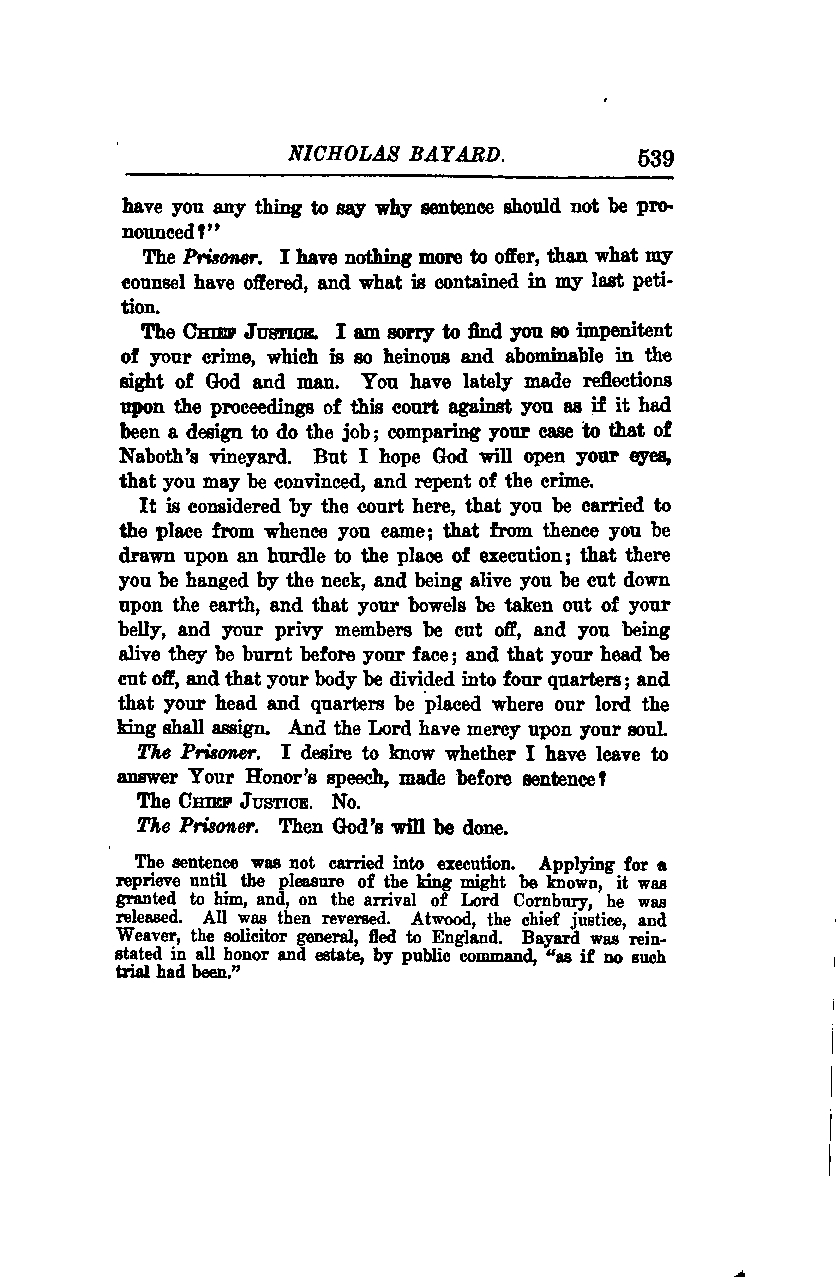
Here is the translated text as follows:
NICHOLAS BAYARD
"Have you anything to say why sentence should not be pronounced?"
The Prisoner: "I have nothing more to offer than what my counsel have offered, and what is contained in my last petition."
The Chief Justice: "I am sorry to find you so impenitent of your crime, which is so heinous and abominable in the sight of God and man. You have lately made reflections upon the proceedings of this court against you as if it had been a design to do the job, comparing your case to that of Naboth’s vineyard. But I hope God will open your eyes, that you may be convinced, and repent of the crime."
"It is considered by the court here, that you be carried to the place from whence you came; that from thence you be drawn upon a hurdle to the place of execution; that there you be hanged by the neck, and being alive you be cut down upon the earth, and that your bowels be taken out of your belly, and your privy members be cut off, and you being alive they be burnt before your face; and that your head be cut off, and that your body be divided into four quarters; and that your head and quarters be placed where our lord the King shall assign. And the Lord have mercy upon your soul."
The Prisoner: "I desire to know whether I have leave to answer Your Honor’s speech, made before sentence?"
The Chief Justice: "No."
The Prisoner: "Then God’s will be done."
The sentence was not carried into execution. Applying for a reprieve until the pleasure of the king might be known, it was granted to him, and, on the arrival of Lord Cornbury, he was released. All was then reversed. Atwood, the chief justice, and Weaver, the solicitor general, fled to England. Bayard was reinstated in all honor and estate, and public command, "as if no such trial had been," to quote P.